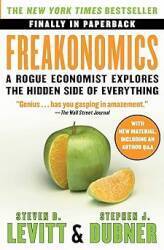
Bob's Travel Recommendations
Travel Around the World
So you've seen my Toilets of the World site and my other travel-related web pages, and you wonder how you, too, could enjoy such plush accommodations? Here's how to find the places where I've gone, sometimes more than once, and lived to tell about it.
Know What You're Doing
Read about where you're going. Attempt to prepare yourself. Get something like a Rough Guide. If you need to sort out local minibus schedules, including how to pay for your ticket and how much it will probably cost, they will do the job.
Lonely Planet guidebooks were great in the 1990s into the early 2000s at the latest. After that more and more of the content is for luxury travelers, and the meaning was obscured with constant British slang such as "naff", "natty", "toff", "twee", "tuck in", "splash out", and on and on. In 2007 a 75% stake in the Lonely Planet brand was sold to BBC Worldwide, and in 2013 it was sold to a U.S. billionaire. Businesses are described as "cute" and "adorable" as if they were kittens, and food is described as "to die for" and "scrumptious" because the writers really wanted to write for "Sex and the City" but missed their chance. Get used older editions from Amazon or at library book sales.
World rail travel information:
The Man in Seat 61
How to repair your gear:
How to repair a backpack
Make relatively cheap calls while overseas:
How to replace a mobile phone SIM card and
avoid international roaming charges
Do not poop in the sink!
Americans really need to learn what a bidet is before venturing overseas.
World electrical power info
Is It Safe?
Of all the places I've gone, the most dangerous in several ways is the U.S.A. Really.
No, Seriously, How Dangerous Is It?
Nowhere near as dangerous as it used to be:
| Homicides per 100,000 people | |||||

|


|



|


|

|
|
| 1200-1399 | 23.0 | 47.0 | — | 37.0 | 56.0 |
| 1400-1499 | — | 45.0 | 46.0 | 16.0 | 73.0 |
| 1500-1599 | 7.0 | 25.0 | 21.0 | 11.0 | 47.0 |
| 1600-1699 | 5.0 | 7.5 | 18.0 | 7.0 | 32.0 |
| 1700-1799 | 1.5 | 5.5 | 1.9 | 7.5 | 10.5 |
| 1800-1899 | 1.7 | 1.6 | 1.1 | 2.8 | 12.6 |
| 1900-1949 | 0.8 | 1.5 | 0.7 | 1.7 | 3.2 |
| 1950-1994 | 0.9 | 0.9 | 0.9 | 1.0 | 1.5 |
| Source: Freakonomics: A Rogue Economist Explores the Hidden Side of Everything, by Steven Levitt and Stephen Dubner, citing "Secular Trends of Violence, Evidence, and Theoretical Interpretations" by the criminologist Manuel Eisner, Crime & Justice: A Review of Research 3 (2003), also in "Violence and the Rise of Modern Society", Criminology in Cambridge, Oct 2003, pp 3-7. | |||||
Explore the violence of medieval London with the interactive London Medieval Murder Map at the Violence Research Centre at the University of Cambridge.
Also see Michael Wood's In Search of England, which tells us that in the 13th century 40% of all crime which came to court in England was larceny, largely of farm stock. 20% was burglary (forced breaking and entering), 10% was robbery. Homicide was nearly 20%! Compare that to today's U.S., seen as a violent society, where only about 0.5% of crimes are homicide. London had 5 murders per year per 10,000 people back then, while Miami ("murder capital of US" in 2001 when he wrote that) had 1.5.
Learn to Speak Politely in the Local Language
At the very least, a basic greeting and the local words for "Please" and "Thank you".
Just before a trip to Italy I picked up a conveniently pocket-sized Italian-English dictionary perpetrated by Random House. I bought it quickly, and only looked through it in detail once I was in Italy. It was convenient, but not very useful! It could tell me the Italian words for Jehovah's Witness, wiretap, wire recorder, cuspidor or spittoon, but it did not contain many of the words I tried to look up.
It patiently explained that the Italian word for opossum is opòssum, despite that animal's range being limited to North America. It told me that that decalcomania is the Italian word for decalcomania, but with no indication of what it means (a mid-18th-century art technique for transferring engravings and prints to pottery). It had a section of "Useful Phrases" including "I want to send a telegram" and how to ask if travelers' checks are accepted, but nothing about credit cards. It also explained that one chilolitro is equal to 264.18 gallons. That might be useful to mariners, although it doesn't say whether that's British or U.S. gallons.
How is any of that useful?
And then there are:
The Dangerous
Phrasebook
The Useless
Phrasebook
My Postillion Has Been
Struck By Lightning
Finnish as a
World Language?
On the topic of languages, there is a wonderful passage in the "Languages of the World" article in Encyclopedia Britannica, in the section about Latin-based languages:
Many Romance dialects have virtually ceased to be spoken in the past century. Of these, Dalmatian is the most striking, its last known speaker, one Antonio Udina, having been blown up by a land mine in 1898. He was the main source of knowledge for his parent's dialect (that of the island of Veglia, or Krk), though he was hardly an ideal informant: Vegliot Dalmatian was not his native language, and he had learned it only from listening to his parents' private conversations. Moreover, he had not spoken the language for 20 years at the time he acted as an informant, and he was deaf and toothless as well.
Maps
All sorts of maps of Europe and west Asia: euratlas.com
Hostel directories
hostels.com hostelz.com hostelsclub.com
Realize that American credit cards may have limited functionality
There's a traveler's inconvenience caused by the U.S. being a little behind the rest of the world in some ways: Almost all countries' banks now issue credit cards that are smart cards, with electrical contacts and an embedded chip. It's a very nice security feature, you must use a PIN to use the card and so a stolen card simply cannot be used. All Australian credit cards have been smart cards since 1985. The problem is that old-fashioned American credit cards don't work in a lot of the automated kiosks, for example, the handy system that sells tickets in French train stations. We have to go stand in line with all the other Americans at the staffed ticket window where we can still use our quaint no-security cards.
Citibank is a huge international bank, so, after returning from a trip overseas I went into a Citibank branch in Chicago and asked when they would be issuing smart cards. The teller didn't have any idea what I was talking about, so she called Citibank's regional credit card expert. Then he didn't know there was such a thing. The same thing happened when I asked in another Citibank branch in Chicago.
Later, when I was in New York, I asked in a large Citibank branch in mid-town Manhattan. Finally, they knew exactly what I was talking about! Citibank had experimented with issuing smart cards to their customers who live in New York, but they found that the American market really has no interest in such a thing. What is preferred in the U.S. is a card with an RFID chip, so you don't even have to take your wallet out of your pocket. Just stand close enough to the register and your card will be billed.
Travel Quotes
-
The World is a book, and those who do not travel read only a page.
— Saint Augustine (354-430) -
It is better to travel well than to arrive.
— Buddha (563-483 BC) -
For my part, I travel not to go anywhere, but to go.
I travel for travel's sake. The great affair is to move.
— Robert Louis Stevenson (1850-1894) -
We are all travelers in the wilderness of this world,
and the best we can find in our travels is an
honest friend.
— Robert Louis Stevenson (1850-1894) -
To travel is to discover that everyone is wrong about
other countries.
— Aldous Huxley (1894-1963) -
Travel is fatal to prejudice, bigotry, and
narrow mindedness.
— Mark Twain (1835-1910) -
The first condition of understanding a foreign country
is to smell it.
— Rudyard Kipling (1865-1936) -
I must not fear. Fear is the mind-killer.
Fear is the little-death that brings total obliteration.
I will face my fear.
I will permit it to pass over me and through me.
And when it has gone past I will turn the inner eye
to see its path.
Where the fear has gone there will be nothing.
Only I will remain.
— Bene Gesserit Litany Against Fear -
That which does not kill me makes me stronger.
— Friedrich Neitzche (1844-1900) -
All travel has its advantages.
If the passenger visits better countries, he may learn
to improve his own. And if fortune carries him to worse,
he may learn to enjoy it.
— Samuel Johnson (1709-1784) -
The whole object of travel is not to set foot on foreign land;
it is at last to set foot on one's own country as
a foreign land.
— Gilbert K. Chesterton (1874-1936) -
He who would travel happily must travel light.
— Antoine de Saint-Exupery (1900-1944) -
Travel, in the younger sort, is a part of education;
in the elder, a part of experience.
— Sir Francis Bacon (1561-1626) -
[We travel] because we wanted to
travel — because we believed, in the light of previous experience,
that we should enjoy it.
— Peter Fleming, in News of Tartary, 1936 -
The cool thing about being famous is traveling. I have always
wanted to travel across seas, like to Canada and stuff.
— Britney Spears (1981-), disproving Sir Francis Bacon's claim
Then there is Eric Ambler
Many Americans seem to think that patriotism makes it wrong to go anywhere. A menacing character in Eric Ambler's novel Journey Into Fear has this to say about patriotism:
In times of peace only the fanatical nationalist demands that a man should surrender himself body and soul to the government of the country in which he was born. Yet, in war time, when men are being killed and there is emotion in the air, even an intelligent man may be so carried away as to talk of his "duty to his country." You are fortunate because you happen to be in a business which sees these heroics for what they are: the emotional excesses of the stupid and brutish. "Love of country!" There's a curious phrase. Love a particular patch of earth? Scarcely. Put a German down in a field in Northern France, tell him that it is Hanover, and he cannot contradict you. Love of fellow-countrymen? Surely not. A man will like some of them and dislike others. Love of the country's culture? The men who know most of their countries' cultures are usually the most intelligent and the least patriotic. Love of the country's government? But governments are usually disliked by the people they govern. Love of country, we see, is merely a sloppy mysticism based on ignorance and fear. It has its uses, of course. When a ruling class wishes a people to do something which that people does not want to do, it appeals to patriotism. And, of course, one of the things that people most dislike is allowing themselves to be killed. But I must apologise. These are old arguments and I am sure you are familiar with them.
If you're not bored yet, you might be interested
in (or at least tolerate):
Toilets of the World web site
Rudimentary Turkish Grammar



